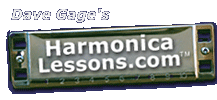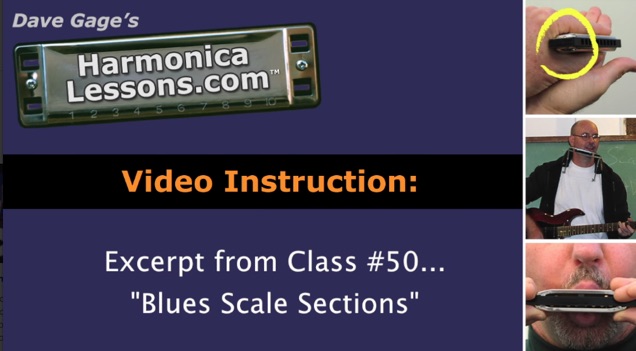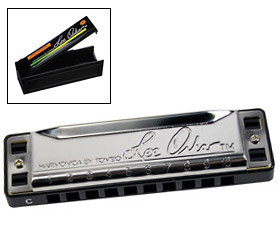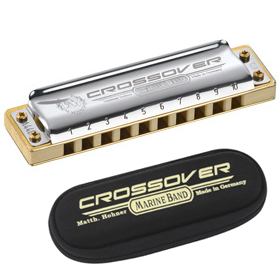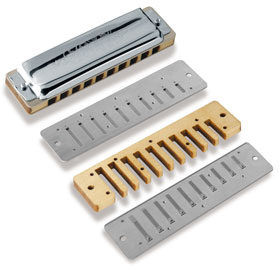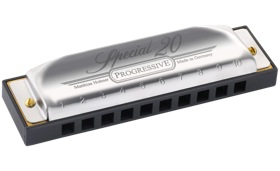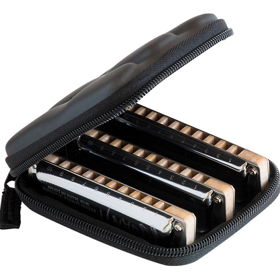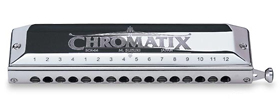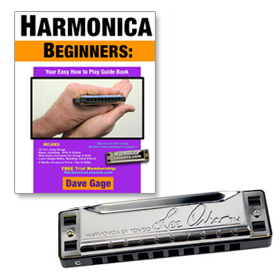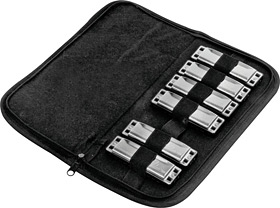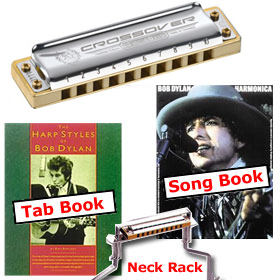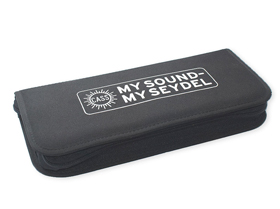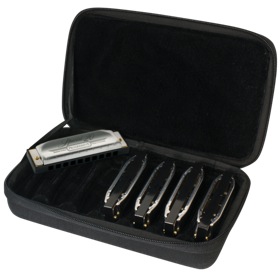Mics & Amps
 |
MEMBER-ONLY PAGES:
Intro Page Choosing a Mic Holding a Microphone Choosing an Amp Amplifier Settings Using Effects |
|
- Acoustic harmonica playing vs. amplified playing- Even a rock guitar sound can be simulated with the correct playing styles, mics, amps, and effects. The difference between acoustic harmonica playing and amplified playing is very similar to the contrast of the acoustic and electric guitar sounds.
- Feedback: your worst enemy- The best amplified sound around is useless to you on stage if no one can hear you. Be sure that whatever gear you end up with that it can create enough volume before feedback levels (that loud screeching sound you occasionally hear in "live" situations) so that you and the audience can hear what you're playing. At rehearsals or on stage, you can always "mic" the amp speaker to help increase your volume to compete with the other instruments without feedback.
- Combination of mic and amp choice- Not every microphone will work great with every amplifier. You will need to find that "magic" combination of mic and amp for the best sound, price, and least amount of feedback.
- Which to buy first, mic or amp?- This is the classic chicken or the egg scenario, but a good approach would be to acquire the microphone first and then try out different amplifiers to see how they sound together.
- "Mic" your amp onstage- The best amplified sound around is useless to you on stage if no one can hear you. At rehearsals or on stage, you can always "mic" the amp speaker to help increase your volume to compete with the other instruments without feedback. Have the sound person put a separate microphone in front of your amp which can then be fed through the P.A. sound system with the vocals so that you can be heard. This is great for smaller amps incapable of reaching larger volumes without causing feedback.
- What creates the classic over-driven amplified blues sound?- The classic "Chicago Blues Style" distorted sound popularized by Little Walter, is created a combination of overdriving the microphone element, the tubes of the amplifier, the speakers of the amplifier, and most importantly, the harmonica itself -- which is done by the player's own good breathing, single note, and general playing technique.
- The player vs. the equipment- Microphones, effects, and amplifiers will increase and modify the natural sound of a harmonica players, but will not substitute for good playing ability. A great player will sound great whether heard acoustically or with any kind, amount, or price range of equipment. The equipment will not make you sound like a great player, being a great player will make you sound like a great player. The equipment will merely enhance and amplify your own sound.
- For Mic/Amp recommendations and links to buy- Visit our Harmonica Store.com Stage and Jamming Equipment section.
